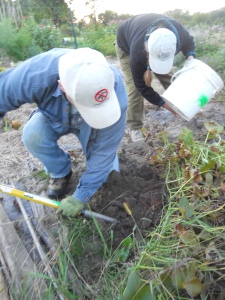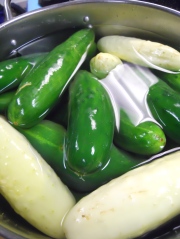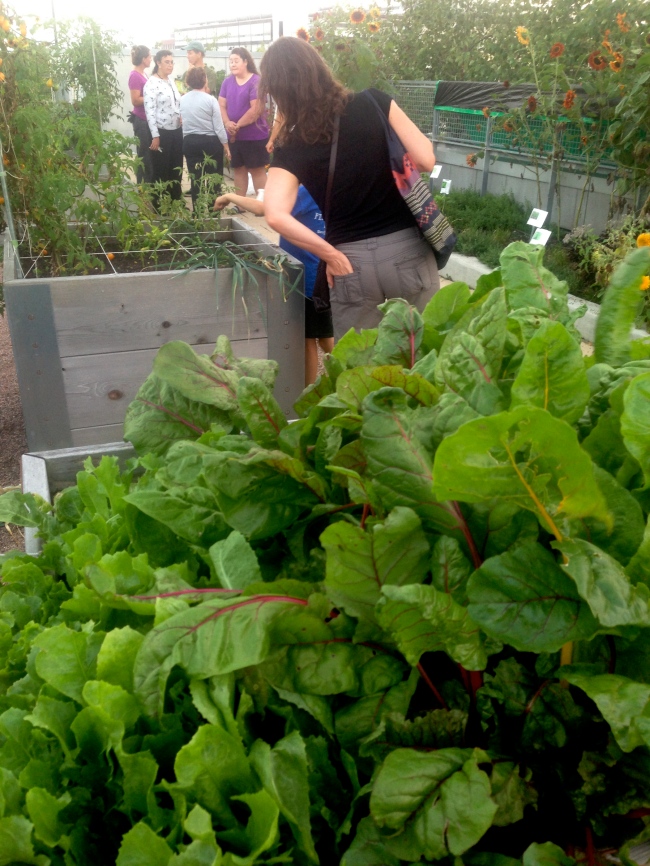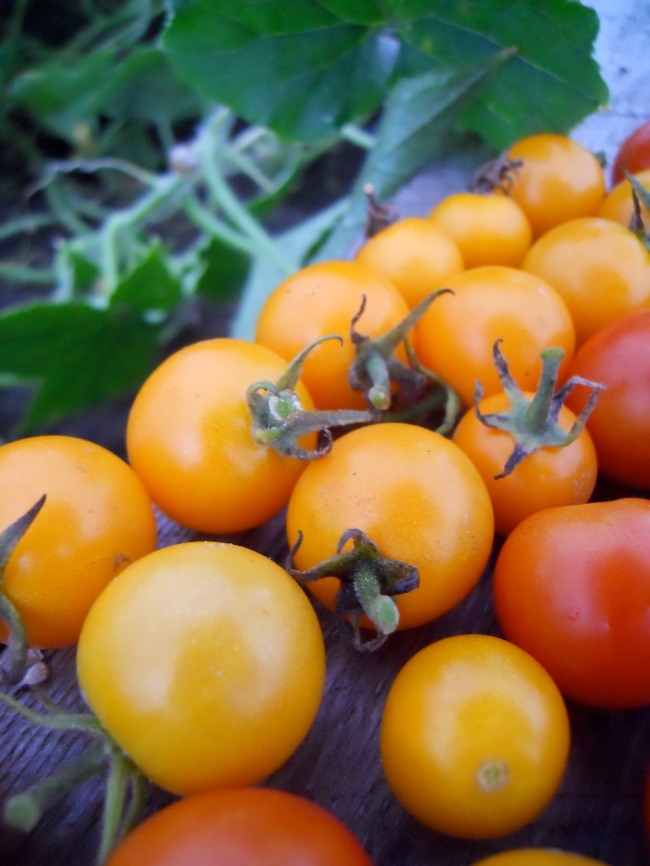Topics:
- Pickling techniques
- Curing sweet potatoes
Summary of the Week:
- Putting the garden to bed
- Dug sweet potatoes
- Harvested the first of the winter squash
The days are getting colder, dusk is coming earlier, and we are starting to prepare the garden for the winter. There is still plenty of work to be done in the garden though before the season comes to an end. The Wednesday-Saturday class got to learn about pickling and putting up vegetables for the winter. We talked about cold-pack and hot-pack pickling methods and the techniques used in pickling that reduce the risk of the vegetables being spoiled during storage. Our pickling recipe can be found here (http://www.rodalenews.com/pickling-cucumbers) but there are a HUGE variety of pickling recipes available if you wanted to branch out.
Here are a few ideas:
- 23 Pickling Recipes with really funky combinations at http://www.seriouseats.com/2012/07/pickling-recipes.html
- Great tips and recipes from the Old Farmer’s Almanac at http://www.almanac.com/content/pickling-tips-and-recipes

Later in the week we began harvesting sweet potatoes and winter squash. Denise told us that sweet potatoes should sit in a warm, dry place to cure for a few weeks and develop sugar before being put in a root cellar or other cool dry place for storage.

We have also been starting to put the garden to bed for the winter. Most of our plants, except for plants in the brassica family and a choice few that still look like they might produce something, have been pulled out of the garden bed and composted.







